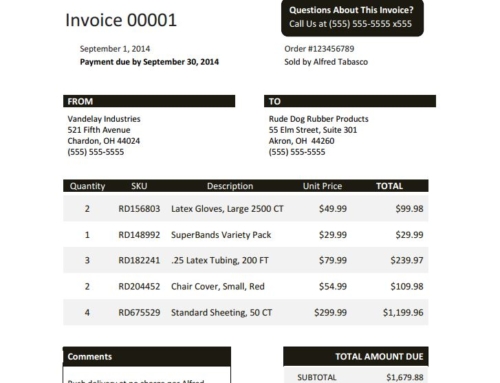In the B2B business world, we often time have to offer credit to customers in order to make sales. However, offering credit does not come without its risks. Will the customer pay it back on time, or pay it back at all? Is this customer trustworthy? These are all questions that must be addressed prior to extending credit terms.
The best way to handle these situations is to come up with a business credit scoring plan. This business credit scoring plan will be used every single time you offer credit terms to a customer to decide whether they qualify and how much you are willing to offer them. A business credit scoring plan employs many factors to determine creditworthiness, such as trade credit reports, references, bank statements, credit agency ratings and more.
When you prepare to create a business credit scoring plan, these are the three areas that you must look into:
The traditional credit information is all the information you would normally collect from a customer before doing business. You will want to ask for trade references, businesses that have previously done business with them on credit terms in order to see how often they pay on time or pay late. You will want to ask how long they have been in business for and what products or services they sell. These are good indications of how established a company is and what their past history says of their likelihood to repay their debts.
There are a few different agencies that you can use the check a business’ credit score. Some of the most common are Dun & Bradstreet, Experian and Equifax. If you are a National Association of Credit Management member, you can obtain credit scores through the association. These scores are built off of multiple factors such as payment history, outstanding debts and more. These scores are already created for you and you simply need to go and obtain them.
Checking a business’ financial and bank statements is another telltale sign of a company’s creditworthiness. By obtaining information about how many business accounts they have open, how many loans they take out and bank references. Getting a bank reference for a company shows how responsible they are with their finances.
Once you have all this information on the company, you can create a business credit scoring card that will help you to analyze all the information in one space and give a custom credit score to your customers. For example, you can rate a trade reference on a scale of 1 to 10, their payment history on a scale of 1 to 10, their bank reference on a scale of 1 to 10 and add those scores to their credit agency rating. An example is included below:
Trade Reference:
Payment History:
Bank Reference:
D&B Credit Rating:
Custom Business Credit Score:
If you were working with Vandelay Industries, based on the numbers they would be a good company to work with and extend credit to.




